We are MY FOUNDATION
MY FOUNDATION is a charitable fund that helps individuals and companies invest in non profit charity foundations through donations and CSR activities -thus making a positive impact on the world.The charity foundation is founded by music producer Remee S. Jackman and model and influencer Mathilde Gøhler together with investor Christina Rind Helsbro.
Mission
Our primary focus is children and the socially disadvantaged, who we support through our charity work in village communities and selected projects outside of the villages in countries that do not have the resources to carry out that task alone.
We perform this charity work in collaboration with the child help foundation SOS Children’s Villages, the world’s largest NGO (non profit organization) for orphans and abandoned children. For more than 70 years they have worked to ensure the rights and well-being of children in 136 countries worldwide. We are very proud to have SOS Children’s Villages child help foundations as a partner in our mission to ensure vulnerable children a dignified, caring and educational life. In collaboration with them we support the UN’s World Goals and address in particular World Goals 1, 2, 3, 4, 6, 8, 10 and 16, which relate to the development of better conditions for children and young people so they will have a better chance at reaching their full potential and create a bright future for themselves.
Our village partners, both private investors and CSR companies, already count everything from large international companies such as the world renowned beauty brand Augustinus Bader, which supports a village community in Rwanda and a project in Jordan for the benefit of Syrian refugee children, and Danish groups like Lyne and Lindberg Group, a village partner of Unguya, Tanzania.
Idea
The idea of MY FOUNDATION originated in Kenya in 2014. Here, Remee S. Jackman and Mathilde Gøhler, both ambassadors for the SOS Children’s Villages, visited the village community of Buru Buru and Nairobi’s Kibera Slum. Experiencing the conditions of the orphans in the country was heartbreaking for the couple and especially Remee S. Jackman could, as a former orphan, especially relate to the children and their situation.
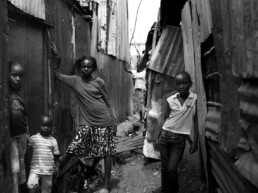
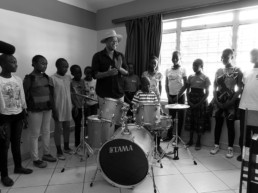
To see how little financial support is needed to turn tragedy into success for families in the slums, and how easily you can make a huge difference for orphans in the village communities was a game changer for the couple.
The couple began raising money for Buru Buru, where their sponsor child, Rei, lives. Because even though the village community was a great home for the orphans, there was at that point no money for upgrading the facilities so that the children could express themselves fully and discover their unique talents. Since then, the couple has raised money to build a music school, an art facility, a computer school and a dance academy and have supported several projects in the slums.
Remee meets his sponsor child in Kenya
Remee S. Jackman and Mathilde Gøhler’s sponsor child Rei got off to a rough start in life and came to an SOS village community only three months old.
“It is striking how much mine and Rei’s stories resemble each other – and it is clear to see that he too has come to a place where he now thrives.”
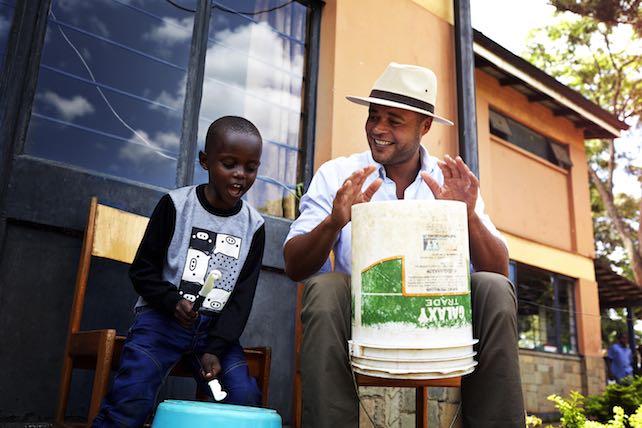
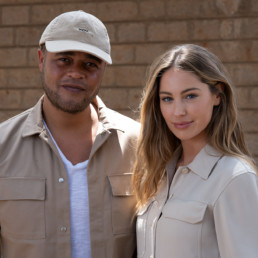
"It has been the most rewarding experience to create MY FOUNDATION. Due to the direct model with earmarked money for selected projects in the village, the effect becomes very visible in the children."
Team
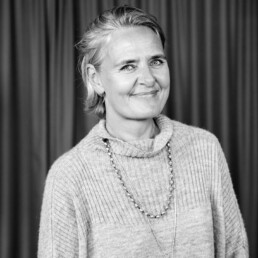
Christina Rind Helsbro
Founder & Chairman of the Board
christina@rind.dk
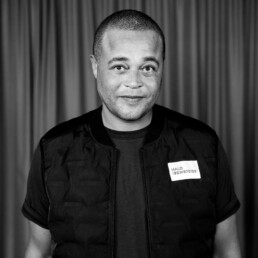
Remee S. Jackman
Co-founder & Vice Chairman
remee@remeegroup.com

Mathilde Gøhler
Co-founder

Katrine Buhl Bjerrehuus
Fundraising Manager
katrine@myfoundation.dk

Sørine Skov Kruse
Social Media Manager

Peter Michael Andersen
Lawyer & board member
Board of Directors
The board meets four times a year. At these meeting they also discuss which causes to support.
Accountant: Ecomentor at Sten Glarkrog
Distribution policy
If you have a good cause we would love to hear from you.
Financing and use of funds
100 percent of all funds raised go to support children and socially disadvantaged.
At MY FOUNDATION, our focus is to make the biggest possible difference for those who really need it. Therefore, all costs for administration – salary, rent, operation and more – are financed by our Founding Partners. This means that the funds we generate through fundraisers, partnerships and donations go undiminished to the purpose we raise for.
Tax deduction
As a partner of a village community or a project in collaboration with SOS Children’s Villages (or other charities approved by the Danish Tax Agency), you can in Denmark receive a tax deduction for your donation.
- You can receive a maximum deduction of DKK 16,600.
- You will automatically receive your deduction if you have given the association your civil registration number.
- The value of the deduction is approx. 26 %, so if you give DKK 100, you save approx. DKK 26 in tax.
Q&A
14 frequently asked questions and answers about MY FOUNDATION
A: MY FOUNDATION helps individuals and companies have a positive impact on the world. We do this in collaboration with SOS Children’s Villages through projects and partnerships in our priority countries, specific earmarking of donations and documentation of the effects of the support.
A: SOS Children’s Villages has 70 years of expertise in working with vulnerable and orphaned children, and in ensuring that orphans have a safe upbringing. That is why Remee S. Jackman and Mathilde Gøhler have been ambassadors for SOS Children’s Villages for several years and have also chosen to collaborate with SOS Children’s Villages on MY FOUNDATION.
But in the long run, we hope to be able to collaborate with many more organizations and thereby raise even more money for the causes that we see a special need to support.
A: In some village communities there may be more than one MY FOUNDATION partner. The exact number depends on how big an economic need there is in the village community. If you have questions about a particular village, please contact our fundraising and communications manager.
Camilla Natascha Nivaro Holm
Mail: camilla@myfoundation.dk
Tel: + 45 21 22 23 75
A: It typically costs between EUR 670,000 and 1,34 million to run a village community a year – depending on where in the world it is. It can therefore be difficult for a single MY FOUNDATION partner to finance the total need of the village community.
A: This is ensured through regular updates and documentation of, among other things, your earmarked projects, a documentation that we are happy to help you communicate to, for example, partners or other interested parties. As a village partner you get your own website which shows your efforts to promote the village community’s development. Here you can also fundraise and thus raise money for more projects in your city. You also get a media kit with pictures, text and other relevant information that helps you spread the good news about your efforts on your own channels.
A: A village community usually consists of a number of family houses and facilities that both children of the village community and local children outside the village have access to. It can be a kindergarten, school, medical clinic, playground and football field as well as office facilities for city employees.
A: You help the most vulnerable children in the world – those who are completely alone in the world. Without mom, dad or other adults who can take care of them. Many of the children come to the village community with a baggage of loss, grief and failure. As a MY FOUNDATION partner, you have the opportunity to ensure that orphaned and vulnerable children do not grow up alone, but have a safe and caring upbringing with a new family.
A: A typical village community has 10-15 family houses with one SOS mother and up to 10 children in each house. If several children come from the same biological family, they live together in the family. For together, siblings can process and cherish their past and build a common future. The individual child is always put at the center, and special needs are always met. SOS mothers, SOS aunts and in some cases SOS fathers are the primary caregivers for the children, but there are typically other professional caregivers employed in a village community to contribute to a caring and safe upbringing for the children. The final number of children and adults varies from village to village and from country to country.
A: Life in an SOS family is similar to other local families. The children go to school and otherwise help and have daily duties in the household, such as helping with cooking. The SOS parent is responsible for the daily care of the children and for the family’s household and finances with the support of the head of the village community and the other staff. The SOS mother and the SOS father are professionally trained caregivers who are able to take good care of the children, who often bring luggage in the form of loss, grief and failure. The parents are employed and thus have no paid work outside the home.
A: It is possible to visit the majority of the village communities in the world. Prior to a visit, we always check whether it is safe visit the country and local area. If this is considered to be the case, a visit costs from EUR 6,700 for two people, including flights, accommodation and a guided visit to the city and to selected projects outside the city.
A: When they are around 14 years old, they often move to a transitional home with other young people. The transitional housing can be located both inside and outside the village community. They will continue to stay close to their village family, but it is a step towards independence, which is done with close follow up and support. In some areas teenagers move to a youth home, in other countries they move back to a family member or a foster family in the local community, and then there are countries where the young people are sent to boarding school or other form of youth education where they live outside the home. The solution depends on the context and tradition in the individual country.
A: All children go to kindergarten and school, and when they get old enough, they have the opportunity to educate themselves further. Some children go to university, while others prefer a practical education such as hairdresser, mechanic, carpenter or to start their own business. The majority of all children get a 9th or 10th grade exam or a practical education in a craft. One third receive a higher education, such as a university degree. Through schooling and further education, they as adults become able to support themselves and contribute knowledge and commitment to their local environment.
A: SOS Children’s Villages always works with long-term solutions for the children. The children get help until they can manage themselves financially and socially. As in all countries there is a big difference in how adulthood ends up unfolding. Surveys show that 90 percent of those who have previously received help from SOS Children’s Villages pass on their knowledge of care to the next generation. 90 percent of people who have received help from SOS Children’s Villages can provide the most basic needs themselves, such as housing, food and medical care. 80 percent who have received help from SOS Children’s Villages feel socially and emotionally comfortable, free from discrimination and other dangers and are generally satisfied with life.
Many of the children have strong ties to the village community, their SOS mother and SOS siblings, with whom they keep in touch throughout their lives.
A: It is estimated that worldwide, between 140 and 220 million children have lost one or both parents, and especially in developing countries an increasing number of children live without parental care, partly due to illness, including HIV and AIDS, high maternal mortality, extreme poverty or conflict that forces families to split up and migrate. Other reasons why children do not have the opportunity to live with their own family can be divorce, violence, abuse, neglect and sometimes cultural reasons. This could be, for example, a lack of acceptance of children born out of wedlock. In the countries where SOS Children’s Villages works, about ten percent of all children have lost parental care.